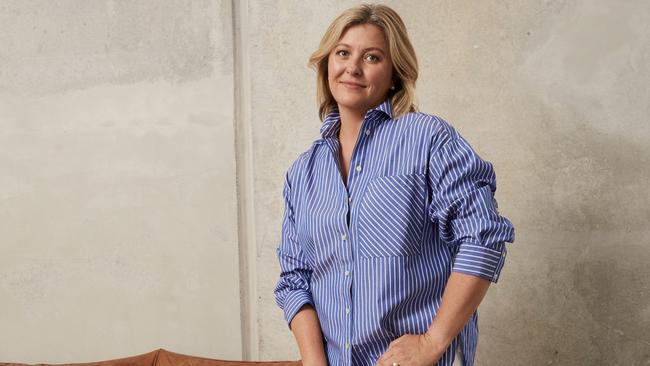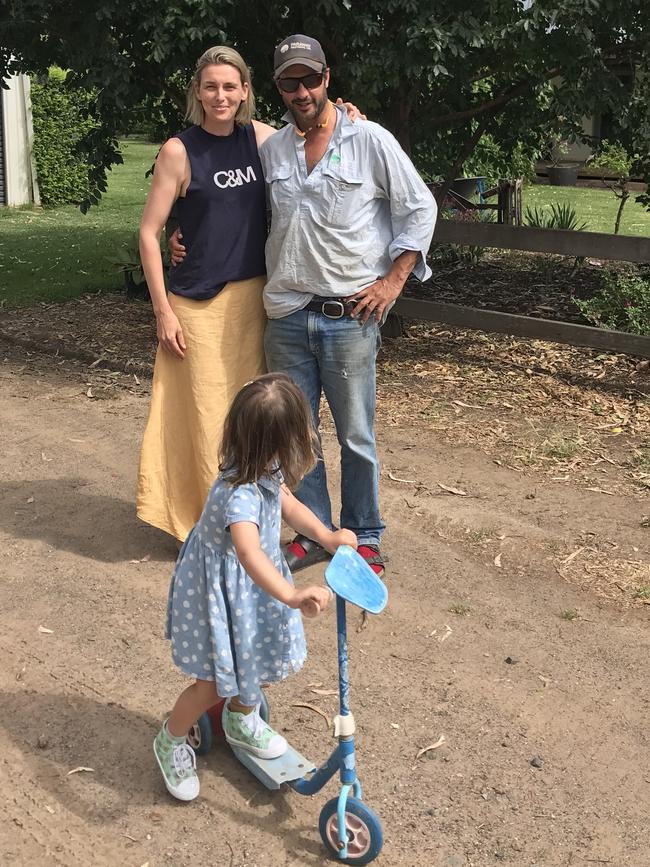
The global retailing phenomenon called Black Friday is once again having a negative impact on the six-year-old business, Millwoods, that she runs from her family’s NSW sheep and cattle property. So much so that Robertson is preparing to recalibrate her business model to work around the sales that are now part of retail life in the Australian summer.
“I think the only way for us to protect ourselves is to make sure our entire stock is delivered by mid-September,” she says. “We sell from the end of February, through to the end of October because once all these sales start …”
She figures she might as well bow to reality and work on a strategy of low revenue from November to the end of February rather than trying to compete with the global discounting warriors.
Millwoods turns over about $750,000 of stock each year but because of the cost of living crisis, takings are down about 35 per cent in 2023. Black Friday may be good for consumers but it creates a perfect storm for those like Robertson building an online business in country Australia, where poor internet connections and transport difficulties already take a toll.
Robertson designs shoes that are made in China and Spain and shipped back to the farm, from where orders are fulfilled, using the privately operated post office at the nearby town of Coolamon, about 40km from Wagga. The post office takes a small fee for each parcel – another way online outlets contribute to rural economies.
But while tapping into Australia’s love affair with country life and values gives Millwoods and other rural online businesses a marketing advantage, it’s not easy.

A sign of the difficulties came in September when the online marketplace, Buy from the Bush, closed down. Founder Grace Brennan, who lives on a farm outside Warren in northwestern NSW, launched the platform four years ago, appealing to Australians to support rural business at a time of drought. It worked brilliantly and a couple of years back, it actually decided not to participate in Black Friday because the sales approach was not a good fit with its culture. But in the end, the platform proved unsustainable in a harsh economic climate.
It’s not just online business that is finding operations tough. Ironically, an outlet like Millwoods can have an impact on bricks and mortar stores in country towns that try to tap into tourist dollars.
Robertson accepts market forces, but wants Australians to think hard about the source and value of products and the importance of local business in sustaining a rural population. She grew up in Gunnedah and watched her parents run successful businesses in the region. Millwoods is also a lifestyle choice: she can pick up the kids from the school bus because she’s working at home, not 40 minutes away in Wagga.
For many, e-commerce has become an essential part of income for farming families when drought or floods wreak havoc with their operations. And technology, even if wanting at times, has opened doors for professionals opting to live outside the capitals.
Lucie Newsome, a lecturer in the business school at the University of New England, has researched the trend of women farmers using social media to market their product by capitalising on the “food from somewhere, not food from nowhere” movement – food produced by small farmers with community values rather than big conglomerates.
(It’s worth pointing out here that while there’s been a concentration of ownership with big corporates amassing “land banks”, about 90 per cent of Australian farms are still owned by families.)
Newsome says while some businesses are squeezed by the Black Friday factor they are able to differentiate themselves by a rejection of the faceless multinational: “They’re saying, this is my face, I’m embedded in the community with communitarian values … (and it’s) beyond the profit maximising approach.
“These farmers are smaller and the way they survive in industrial agriculture is to capture more of the food dollar by selling direct. They’re marketing themselves based on that niche. They’re saying, look this is a photo of our farm, you can order your meat online, you can order your vegies online, you know where this is coming from. They’re very transparent about their practices, so they say, we don’t use pesticides or herbicides, we have animal welfare-based standards.”
She says there’s a desire on the part of consumers to buy through the short supply chain model, but there are barriers: it’s less convenient and logistics in regional areas are a problem once you’re about 100km in from the coast.
Newsome has also researched the trend of women leaving big employers to set up professional services firms in rural areas.
“Farmers are using more and more services like accounting and PR and legal and IT and ag tech and engineering, because the business has become so much more complex and competitive,” she says. “And we’ve seen that women in particular have noticed there’s that need to be filled, and they’re providing expertise on the basis of place-based knowledge, as opposed to all the other big firms in this space, which include the big four consulting firms and the banks. They’re also choosing to leave those bigger employers to be sole traders or have a micro business.”
It’s mostly happening online and it has developed over the last decade as governments stopped providing various services, advice and training in the bush. But again, it’s tricky because farmers cut back on services in times of drought, for example. As well, telecommunications is a problem for professional service firms that don’t have an office in town.
Newsome says the rural narrative makes for powerful marketing for online businesses in the bush: “It’s not a silver bullet, but it does change the dynamic around geographic disadvantage to a certain extent, it does create a micro economy, it does overcome some of those geographical barriers.”




On Wednesday this week, Jane Robertson finally made the call, slashing prices on her online shoe platform by up to 55 per cent. There was a huge uptick in customer interest after five flat weeks for the Wagga Wagga entrepreneur. But Robertson is not happy.